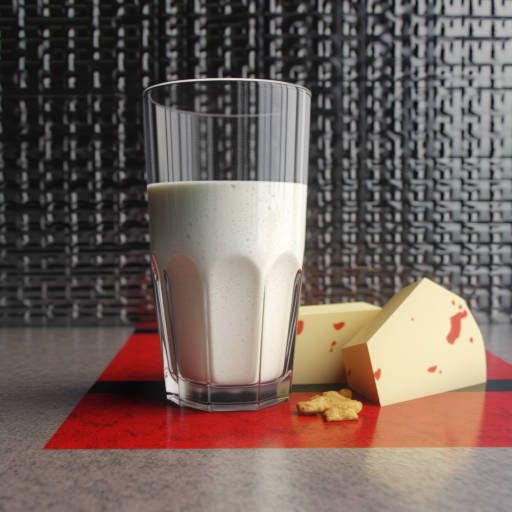Bruges, T.A.D. 6/20/2038 – A Belgian company, Veld Ontwaken, is making headlines with its first commercial-scale trial of creating milk from laboratory-grown mammary cells. Using advanced cloning and culture techniques, the company has developed living mats of cells that, when fed nutrients in solution, produce actual cow’s milk.
“The simplest way to say it is: we made a giant boob,” laughed Veld Ontwaken co-founder, Pieter De Smet, as we met on his farm in northern Belgium. His partner, Olivier Dubois, visibly winced at the joke. “I beg him not to start with that,” he says despairingly.
The farm, nestled in the picturesque countryside, is home to traditional dairy cows and the cutting-edge Veld Ontwaken biological engineering facility. De Smet and Dubois have always wanted to reduce the world’s dependence on animal farming. “I grew up in this business, and I love it and I love the animals. But so many animals suffer in large-scale agriculture for various reasons. We want to take the animal out of the equation.”
When asked about alternatives like almond milk, De Smet scowled before answering, “That’s fine if you like that, but nature made animal milk to feed animals, and I’m an animal.”
The thought of a disembodied mass providing the world’s breakfast might be disturbing to some, but Dubois is quick to point out that it’s the exact same process that occurs in an udder. “The same cells, the same nutrients, the same processes. Do you think about the udder every time you have a glass of milk? No, you enjoy the delicious milk.”
Veld Ontwaken has attracted the attention of both investors and environmentalists, who see the potential for a more sustainable and humane approach to dairy production. Dr. Elisie Van Demmer, a food scientist at the University of Ghent, is cautiously optimistic about the technology. “If Ontwaken can scale up their process and maintain the quality and safety of the milk, it could be a sea-change for the dairy industry.”
However, not everyone is convinced. Traditional dairy farmers worry about the impact on their livelihoods, and some consumers are skeptical about the idea of lab-grown milk. “I don’t know if I could drink something that came from a lab instead of a cow,” says Bruges resident, Annelies Vermeulen.
As the trial continues, Veld Ontwaken is working to refine its process and address concerns. De Smet and Dubois are confident that their “biomilk” (current E.U. food laws prevent them from calling it simply “milk”) will eventually win over skeptics and pave the way for a more sustainable and compassionate future for dairy production.
Reporting for Future News, this is Robert Blythe in Bruges.
